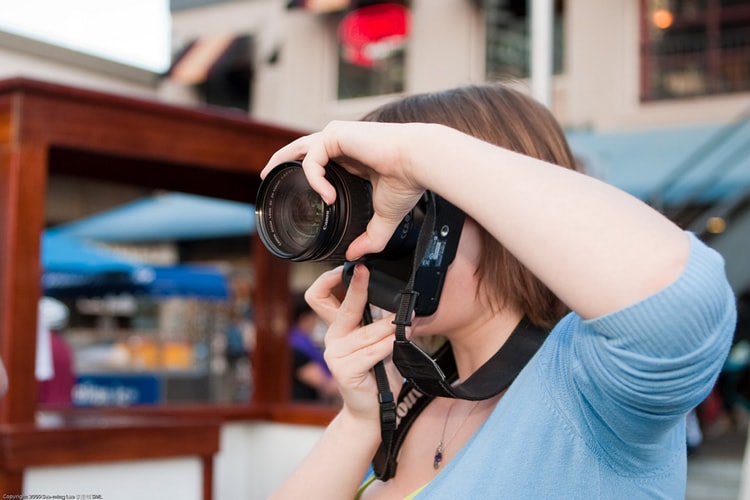The Do’s and Don’ts Of Transitioning To Being A Pro Photographer
Lots of amateur photographers dream of making the jump over to being a pro. What could be better than making a living doing something you love?
But before you make the leap, here are some things you should consider first, beyond the usual tips.

photo by See-ming Lee
Don’t think that ‘loving’ something is enough
If you love taking photos, then doing it for a living can seem like a logical step. But you need to remember that becoming a pro photographer can be very different. When you’re an amateur, you can concentrate on photographing the things you love. You don’t always have that luxury as a pro.
So think about how you’ll feel if you’re going to be photographing things that don’t particularly interest you, or how you’ll cope with a client who wants photographs that don’t agree with your vision. In today’s market, you need to be flexible and it’s a rare photographer who can afford to turn down work. That’s not to say you shouldn’t play to your strengths and specialize to a certain extent – just don’t push yourself into a tiny corner of the market and refuse to come out of it.
Don’t give up the day job
You may well be the next David Bailey, but giving up your day job and ploughing straight into the pro photography world isn’t necessarily going to help you get there. If you have a day job, you presumably have bills to pay and a certain lifestyle to maintain.
Don’t give that up until you are sure you can make enough from photography without it. That might mean shooting at weekends, or after work, and it can be a hard slog. But if you do it this way, you’re less likely to end up living in a cardboard box if you don’t make the money you expect to. Harsh, but sadly a reality!
Do value your work
If you offer shoots for free, then your clients aren’t going to think you’re worth anything. And you can guarantee that they’ll try and get more for free rather than paying. If you are going to do work for free, make it work that’s worth your while. The odd TFP (trade for prints) with model agencies or actresses will help to bulk up your portfolio, and doing some charity work will gain you exposure. The rest of the time, if you need images for your folio, use your family and friends for practice.
To be taken seriously as a photographer, you need to value your work in order for clients to do the same.
Do remember you’re a business
By which I mean that you might take the most wonderful photographs in the world, but if you don’t know how to run a business and market your work, you’ll never run a successful business. Taking good photos is just the start of it. If you don’t know a lot about marketing and running a business, find people who do and talk to them. Read up on the subject and then put aside a part of each day to work on these areas. There are millions of great images out there and probably equally as many great photographers, so you need to make your work stand out.
If you don’t enjoy this side of things, don’t become a pro, because it’s going to take up a lot of your time.
Don’t rely on Photoshop
Yes, digital is wonderful and yes, you can make a lot of alterations in programs like Photoshop. But you really shouldn’t rely on it. You need to learn how to use your camera inside out and how to use all sorts of different kinds of light. Know your exposure triangle inside out, learn about studio and flash lights and don’t forget to keep learning. There’s always something out there that’s new and that you should know about.
And think of Photoshop as a digital darkroom – there to bring out the best in your image, rather than alter it irrevocably. Don’t be a lazy photographer just because digital has made everything so instant.
Don’t buy up your local camera store
If you’re a keen amateur photographer already, chances are you have a perfectly decent DSLR already. Start with that. It might sounds obvious, but there’s no point in wasting money buying up the latest and greatest kit just because you want to work as a pro. If you have money, then investing in lenses and lights is never a bad idea, but only when you have the money there to spend on them.
If you are as good a photographer as you think you are, you’ll be able to produce great images on whatever camera you currently own. And when you start making money from photography, you can put it back into the business and invest in new gear. (N.B – this is why you need a good accountant so you know what you can and can’t run against the business.)
Don’t be an island
There’s this common myth in photography that, in order to be really successful, you shouldn’t talk to other pros. But being a photographer can be a lonely business and, in my experience, other photographers are a great source of help, encouragement and advice.
So go to industry events, join organizations, go on photo walks, and get in touch with other photographers in your area. Tell them you’re just starting out and would really appreciate their advice. Who knows? A beautiful friendship could be just around the corner!
Seriously though, my photographer friends are amazing and without their help and support, I doubt I’d still be in the business today.
